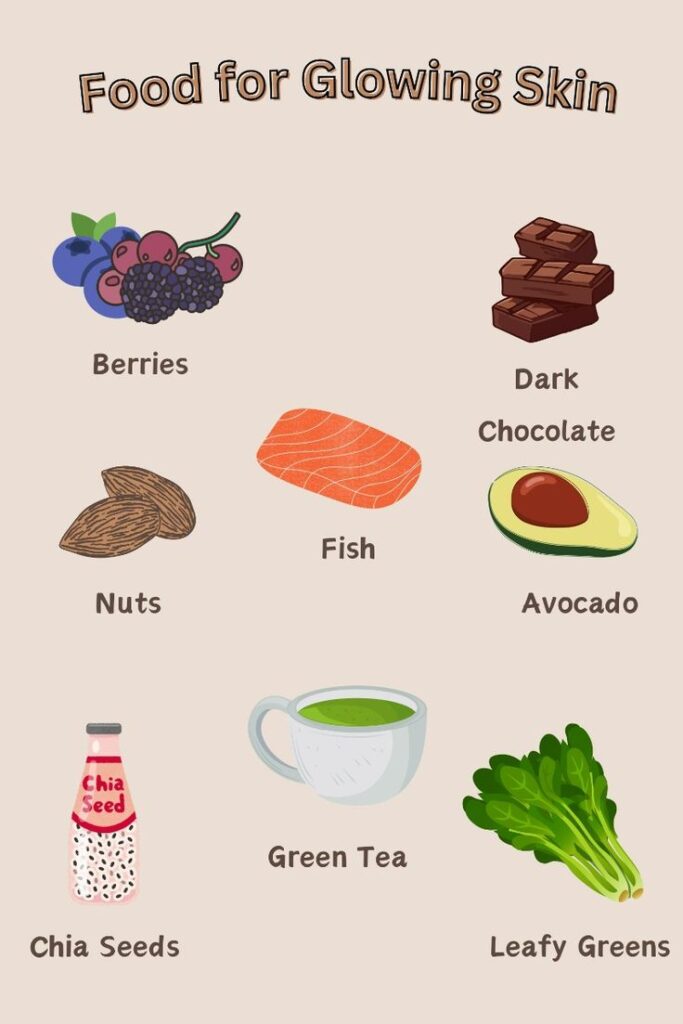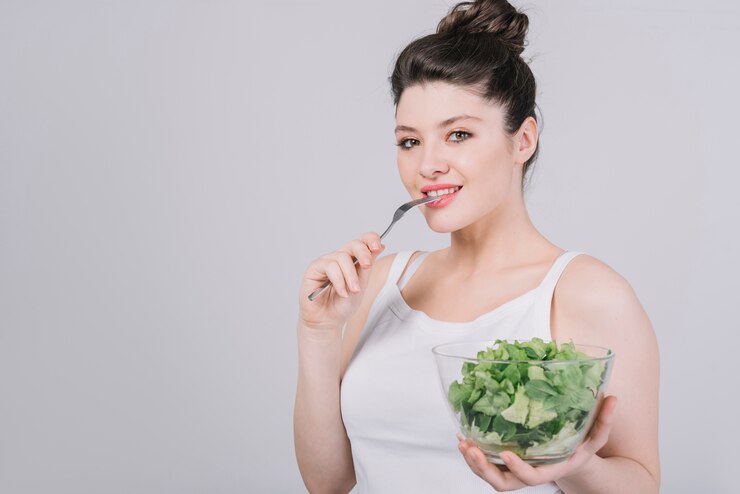We often hear the saying, “You are what you eat,” and this couldn’t be truer when it comes to our skin. The food we consume plays a crucial role in determining the health, appearance, and aging of our skin. From fighting acne to reducing wrinkles, the right diet can work wonders. In this blog, we will explore how diet impacts skin aging, skin health, the best foods for healthy skin, and the connection between nutrition and skin.
How Diet Affects Skin Aging
Skin aging is influenced by a variety of factors, including genetics, environmental exposure, and lifestyle choices. Among these, diet is a significant yet often overlooked factor. Here’s how diet affects skin aging:
- Antioxidants and Free Radicals: Free radicals are unstable molecules that damage skin cells, leading to premature aging. Antioxidants, found in fruits and vegetables, neutralize these free radicals, reducing their harmful effects. A diet rich in antioxidants can help prevent wrinkles and maintain youthful skin.
- Collagen Production: Collagen is a protein that provides structure and elasticity to the skin. As we age, collagen production decreases. Nutrients like Vitamin C, found in citrus fruits and leafy greens, are essential for collagen synthesis and maintaining skin firmness.
- Inflammation: Chronic inflammation accelerates skin aging. Foods high in sugar and unhealthy fats can trigger inflammation, leading to accelerated aging and skin damage. Anti-inflammatory foods, such as fatty fish and nuts, help keep inflammation at bay.
How Diet Affects Skin Health
Beyond aging, diet significantly impacts overall skin health. Certain nutrients can improve skin conditions like acne, eczema, and psoriasis, while others can exacerbate these issues.
- Hydration: Drinking plenty of water keeps your skin hydrated and plump. Dehydration can lead to dry, flaky skin and exacerbate the appearance of fine lines and wrinkles.
- Sebum Production: Omega-3 fatty acids, found in fish and flaxseeds, help regulate oil production in the skin, reducing the likelihood of acne breakouts.
- Skin Barrier Function: A healthy skin barrier protects against environmental damage and retains moisture. Nutrients like ceramides, found in whole grains, and zinc, found in meat and legumes, strengthen the skin barrier.

Best Foods for Healthy Skin
Incorporating skin-friendly foods into your diet can help you achieve a glowing, radiant complexion. Here are some of the best foods for healthy skin:
- Fatty Fish: Rich in omega-3 fatty acids, fish like salmon and mackerel help reduce inflammation, hydrate the skin, and protect against sun damage.
- Avocados: High in healthy fats, avocados keep skin moisturized and supple. They also contain Vitamins E and C, which are essential for skin health.
- Walnuts: Packed with omega-3 and omega-6 fatty acids, walnuts help reduce inflammation and maintain skin’s elasticity.
- Sweet Potatoes: A great source of beta-carotene, sweet potatoes help protect the skin from sun damage and promote a healthy glow.
- Bell Peppers: Rich in Vitamin C, bell peppers support collagen production and help maintain firm, youthful skin.
- Broccoli: Contains vitamins, minerals, and antioxidants that protect the skin against oxidative damage and improve overall skin health.
- Tomatoes: Packed with lycopene, tomatoes protect the skin from UV damage and improve skin texture.
- Green Tea: Contains catechins, which are powerful antioxidants that protect against sun damage and improve skin hydration and elasticity.
- Dark Chocolate: High in flavonoids, dark chocolate improves skin thickness, hydration, and blood flow, leading to a healthier complexion.
- Soy: Rich in isoflavones, soy can improve skin elasticity and reduce the appearance of fine lines.
Nutrition and Skin
Proper nutrition is the foundation of healthy skin. Here’s how key nutrients contribute to skin health:
- Vitamins: Vitamins A, C, E, and D are crucial for skin health. Vitamin A promotes cell turnover, Vitamin C is essential for collagen production, Vitamin E protects against free radicals, and Vitamin D supports skin cell growth and repair.
- Minerals: Zinc, selenium, and copper are vital for maintaining healthy skin. Zinc helps with wound healing and reducing inflammation, selenium protects against UV damage, and copper aids in collagen and elastin production.
- Proteins: Amino acids from proteins are the building blocks of collagen and elastin. Consuming adequate protein helps maintain skin structure and elasticity.
- Healthy Fats: Essential fatty acids keep the skin hydrated, supple, and free from inflammation. Omega-3 and omega-6 fatty acids are particularly beneficial.
- Antioxidants: Found in fruits, vegetables, nuts, and seeds, antioxidants protect the skin from oxidative stress and damage.
Conclusion
A healthy diet is essential for achieving and maintaining radiant skin. By understanding how different foods and nutrients impact skin health and aging, you can make informed choices that benefit your complexion. Incorporate a variety of antioxidant-rich fruits and vegetables, healthy fats, and lean proteins into your diet to nourish your skin from within. Remember, what you eat today can significantly impact your skin’s appearance tomorrow, so choose wisely and enjoy the journey to healthier, more youthful skin.

